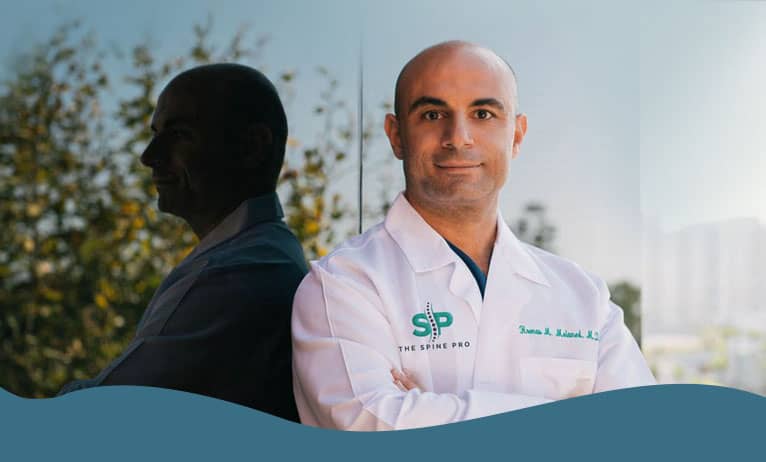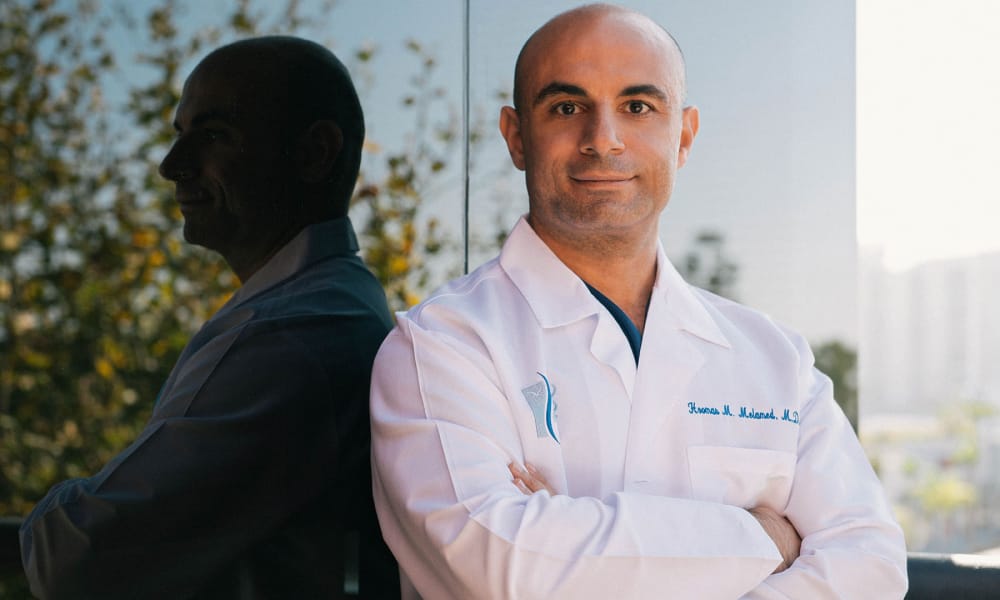Conservative Care Options
According to research, back pain is one of the most common health complaints in the United States. In fact, over 80% of adults in the U.S. will experience back pain at some point during their lifetime. With today’s medical advances, there are other options to treat your back pain rather than immediately resorting to surgery. In most cases, surgery is often unnecessary.
What are the benefits of conservative care?
Dr. Melamed has noticed that many patients get invasive surgeries from other surgeons when they aren’t required. At our practice, we exhaust conservative care options before even considering surgery as an option. Surgery isn’t always necessary, and conservative treatment can be just as effective for both patient outcomes and recovery time.
Conservative care provides a number of benefits, such as:
- Eliminates the need for surgery
- Less expensive than surgery
- Quicker recovery time compared to a surgical procedure
- A non-invasive approach that carries less risk than a surgical procedure
Conservative treatment options
Treatment options for back pain can range from basic pain management, such as medications, to rehabilitating the spine with a physical therapist. Conservative treatment options for back pain can include:
Medications
Drug therapy is one of the most common medical treatments for acute and chronic back pain. Medications can help relieve pain, reduce inflammation, and help relax muscle spasms. Typical medications for back pain include:
- Non-steroidal anti-inflammatory drugs (aspirin, ibuprofen, naproxen, and others)
- Muscle relaxants (Flexeril, Zanaflex, Skelaxin and others; by prescription only)
- Acetaminophen (analgesic)
PRP and cell therapy
PRP (platelet rich plasma) and cell therapy is a minimally invasive strict sterile procedure that uses marrow cells from the iliac crest and platelet rich plasma harvested from the patient’s own blood. PRP and bone marrow contains many rich growth factors and cells that may decrease pain and inflammation while repairing damaged areas and facilitating healing. This procedure is an excellent alternative to spine surgery or joint replacement for patients with minor conditions who wish to remain active.
Physical therapy
Physical therapy is the backbone of conservative treatment for back and neck complications. Physical therapists can help you strengthen your back with specific exercises, which can help prevent inflammation and lessen the strain of degenerative disc disease. Physical therapy can also help decrease pain and provide education on a maintenance program to prevent further injury. Consider also a consistent weekly program stretching and pilates to help build and maintain core and trunk stability.
Life Style and Nutrition Adjustments
Avoiding prolonged sitting at work. Sitting generates the highest amount of Intradiscal pressure and long term is bad for lower back. Best to use standup desk and making sure your spine is in neutral position and your computer is at eye level so you are not keeping your neck in an unnatural position which then can lead to swaying or forward flexing of your lower back. Pay attention to your work ergonomics.
Stick to an anti-inflammatory diet by avoiding processed food, grains/barley/rye/oats, processed sugar; processed meat; avoiding most dairy. Making sure your diet is high in good fats such as avocado, walnuts, almonds, pistachios. Cutting down on animal protein. Making sure eggs and chicken are pasture raised; beef is 100% grass fed and Seafood is wild caught.
Inversion table can go along way to help decompress your back. 1st check with your doctor to make sure no issues medically by being on an inversion table and then if ok then use it as you can tolerate.
Heat and ice therapy
Heat and ice therapy can be beneficial for relieving pain. Heat therapy is useful for stimulating blood flow and relaxing stiff muscles, while cold therapy can be used to reduce swelling and minimize pain.






